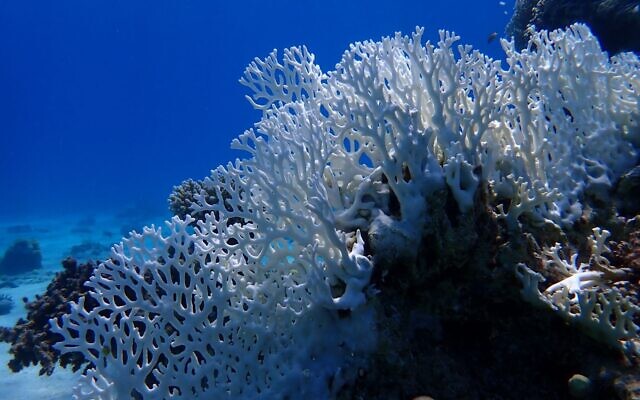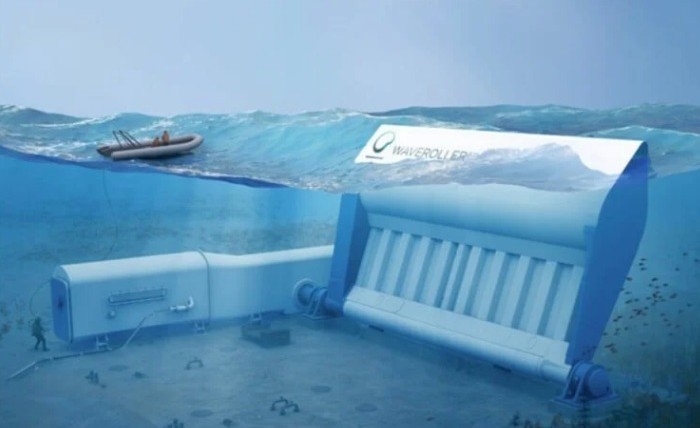This discovery appears to contradict the long-standing hypothesis that corals in the region are exceptionally resilient to rising water temperatures.
Zvuloni, Israeli Nature and Parks Authority
The first instances of coral bleaching in the Gulf of Eilat have been documented this year following an unprecedented rise in seawater temperature, experts reported in an article published in the Israeli academic journal Ecology & Environment.
This alarming discovery comes after years of cautious reports suggesting that southern Israel’s corals — renowned worldwide — were resistant to the challenges posed by rising seawater temperatures linked to climate change. These corals were thought to serve as a potential refuge for reefs elsewhere that have suffered from severe bleaching events.
Although tropical coral reefs cover less than 1% of the Earth’s surface, they are home to at least 25% of known marine species.
Tourism in the city of Eilat is heavily supported by its coral reefs.
Corals live in symbiosis with tiny algae, with the corals providing shelter and nutrients while the algae supply food through photosynthesis.
When water temperatures exceed a critical threshold, corals expel the algae, revealing their white skeletons — a phenomenon known as « bleaching. » If conditions conducive to their survival do not return quickly, the corals eventually starve to death.
Data from a national monitoring program of the Gulf of Eilat show that the average maximum daily water temperature in August reached 30.6°C, compared to a multi-year average of 28.2°C for August between 2007 and 2023. The average maximum daily temperature from July 12 to September 12 was 30.4°C, with a peak of 31.9°C recorded on August 4.
Additionally, weak winds and stagnant air prevented colder layers of seawater from rising, leaving the upper layers abnormally warm.
The first reports of coral bleaching, received on August 12, concerned fire coral (Millepora dichotoma). In the following weeks, the phenomenon was observed in over 10 species of corals as well as in sea lilies, a type of marine invertebrate.
Scientists are currently studying the extent of the bleaching and the recovery and mortality rates of the corals, according to the article.
« While the resilience of the corals in the Gulf of Eilat is high and unique in the world, it turns out that they also have a red line, and it is likely that a tipping point has been reached in the reef system this year, » the article warns.
According to the authors, other seawater characteristics — such as excess nutrients from desalination plant brine and aquaculture, as well as traces of pharmaceutical residues detected in the corals themselves — have exacerbated the effects of the heat.
According to the article, approximately 26 tons of nitrogen are discharged into the Gulf of Eilat each year, despite a limit of 22 tons per year set by an expert committee from the Ministry of Environmental Protection. The government is still facing pressure to increase these quantities even further.
As excessive stress could trigger a sudden collapse of coral reefs, it is the responsibility of the State of Israel to ensure that these additional stress factors are minimized, the article concluded.
In the United States, the National Oceanic and Atmospheric Administration (NOAA) announced earlier this year that the world is experiencing the fourth recorded coral bleaching event, noting that it is the second such event of the decade.
The article, published in Ecology & Environment earlier this month (Hebrew link), was written by Asaf Zvuloni, an ecological engineer with the Israeli Nature and Parks Authority, along with two researchers from the Inter-University Institute for Marine Sciences in Eilat: Professor Maoz Fein and Yonatan Shaked.
Source: timesofisrael



